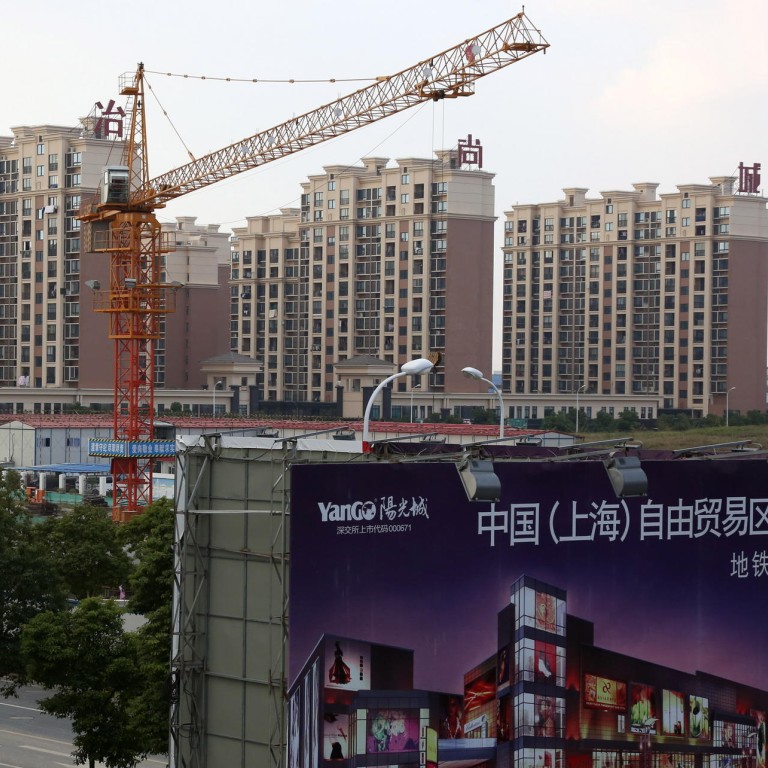
Analysts warn on home price volatility in other Chinese free-trade zones
Analysts warn against repeat of volatility as interest in property investment in zone fades
As the mainland plans to replicate what it has achieved in the Shanghai free trade zone (FTZ), the authorities may have to rethink how they can avoid a repeat of volatile home prices in other trial areas, analysts warned.
Home prices have begun to show signs of a softening in the Shanghai FTZ after soaring over 20 per cent in the second half of last year. Premier Li Keqiang announced the plan to test China's financial reforms in the area dubbed as a mini-Hong Kong last July.
Investors were disappointed by the slow progress which has been reflected in local home prices. An average two-bedroom flat at Waigaoqiao, a core part of the Shanghai FTZ, now carries a price of 25,000 yuan per square metre, almost unchanged since the end of last year.
"The outlook of the zone is not as bullish as people expected," said Li Liang, a manager at Shanghai Han Ju Real Estate Brokerage. "It will be a long time before a real flourishing area takes shape."
It will be a long time before a real flourishing area takes shape
He said home buyers now had more bargaining power to request a small discount, an indication of fading interest in property investment in the zone.
When formally launching the pilot zone last September, authorities envisioned financial firms would cluster at Waigaoqiao in anticipation of drastic financial liberalisation. But the reforms have failed to live up to their promises as policymakers are more worried about rampant hot money flows coming in through the FTZ.
"As of now, we have reasons to believe that the initial assessment on Shanghai free trade zone is positive," commerce minister Gao Hucheng told reporters yesterday. The ministry has been in close contact with other regions that have applied to set up FTZs, Gao added.
In its latest step this month, Beijing eased controls on foreign currency conversions for foreign direct investment while attracting multinational companies to establish foreign exchange asset pools within the zone, a far cry from full yuan convertibility envisioned under the capital account.
"It turned out to be a soap opera," said Qiu Bowei, who bought a flat in Waigaoqiao late last year. "I thought it could be a long-term investment as the free trade zone would … grow into a prosperous place like Hong Kong."
Waigaoqiao is an emerging area about 25 kilometres away from the heart of Shanghai.
"There are a lot of risks in developing or buying properties in these emerging locations," said Savills China research head James Macdonald, as people tend to price in the future at an early stage.
After rising strongly on positive policies, home prices will retreat to a rational level while retail and office markets have the potential to grow in the FTZ as infrastructure improves, said Zhang Ping, research head of Insite China, a real estate asset management company.
She urged local officials to refrain from thinking they can build up a central business district overnight by rushing out land sales without careful planning.


